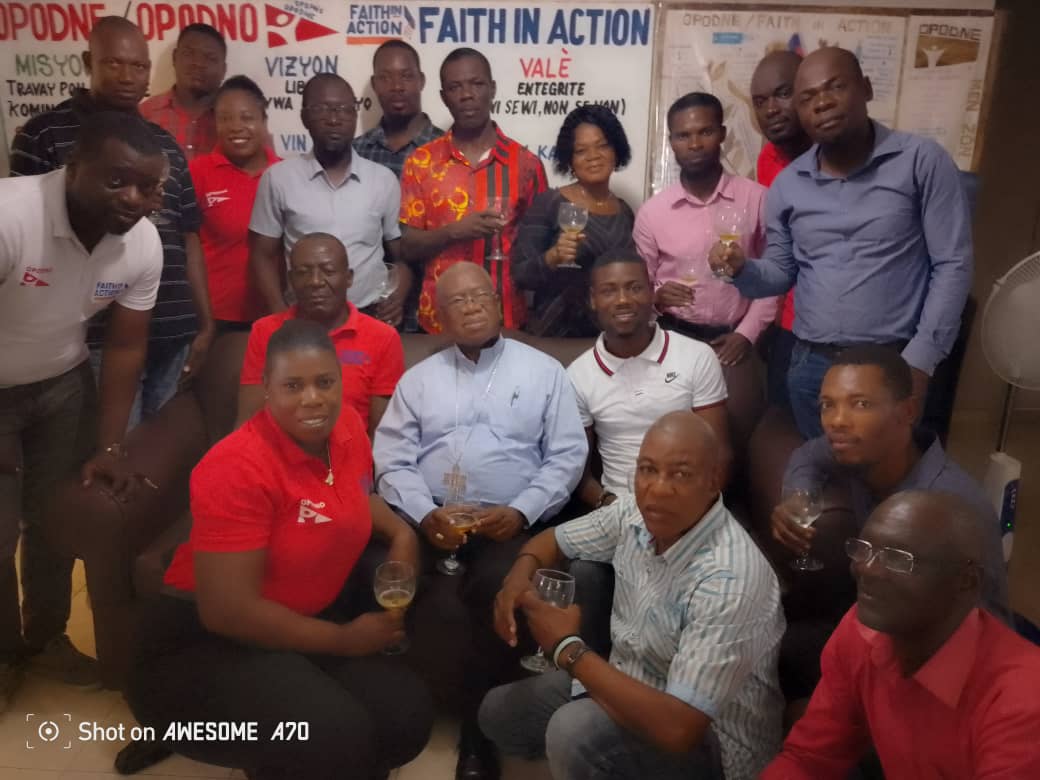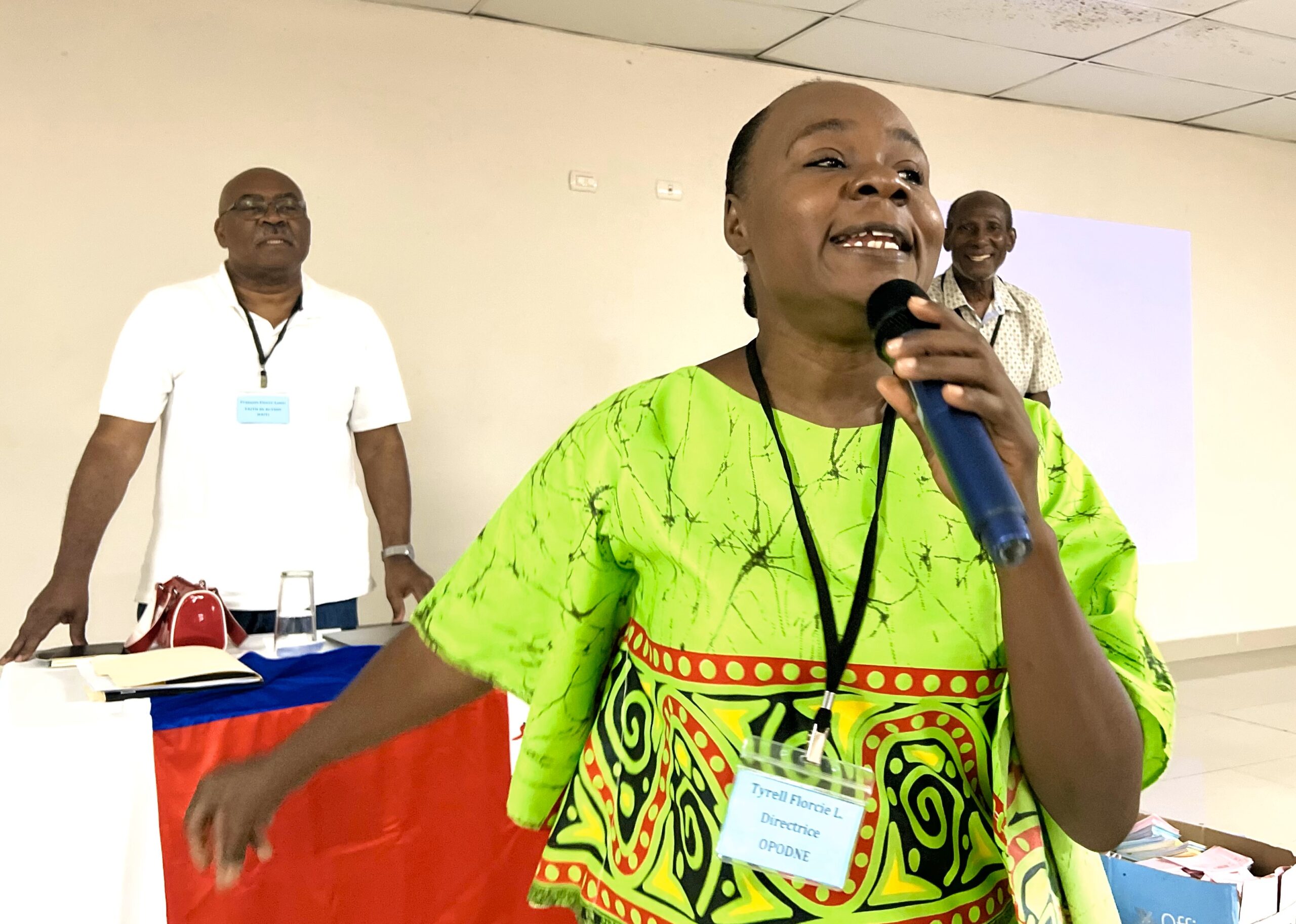“This training gives us the tools to accompany community; deepen our understanding of our roles to build collective power; and move beyond individualism to focus on sustainable change.”
Madam Marie Denise Neres Saint Fluer made this comment at the conclusion of a three-day staff development session in January to help OPODHA staff and leaders overcome the challenges in moving from self-help development to negotiate for changes in policy and systems.
The effectiveness of this bottom up, power-building approach is most clearly evidenced by the investment of $276,000 by the Inter America Foundation to expand OPODHA’s seed bank pilot program from seven to twenty-two communities. This “we plant today, so we can eat tomorrow” campaign goals are to support small-scale farmers, build food independence and alleviate hunger. It is rooted in a continuing listening campaign where four-thousand small-scale farmers identified the need for quality seeds, irrigation and support from agronomists as a first step toward these goals.
After multiple research meetings with Haitian and USAID officials that went nowhere, OPODHA partnered with Saint Barnabas Agricultural Center to launch a self-help, pilot seed bank program to provide farmers in seven community with seeds and support from agronomists. Seeing their success, OPODHA leaders negotiated a grant of $267,000 with IAF (USAID’s counterpart that supports NGOs) to expand this pilot to additional communities. Barely off the ground, this grant is now frozen. This journey typifies OPODHA’s work straddling the world of self-help and organizing for systemic change.
OPODHA is clear about its mission and vision to rebuild Haiti from the bottom up by modelling and pressing for a transparent and accountable Haitian government at all levels. The three-day staff development session was designed to strengthen the culture and practice of organizing in a space where local, national and, now, international government structures are not functioning.
At the retreat conclusion, staff completed a profile of each of the sixty-four communities where they work and each staff selected one or two to begin fully implementing the organizing process and scheduled meetings to share learning, assess progress, and plan further steps.
OPODHA’s Executive Director, Florcie Tyrell, summed up their hopes. “The application of this training will pay a role in our mission to build a different Haiti. The knowledge and skills will help us strengthen our organizations, gather innovative ideas and address the challenges of developing our communities. By working together and implementing the strategies we learned, we can directly contribute to creating a Haiti where solidarity, sustainable development and political commitment serve as the foundation for a better future.”



